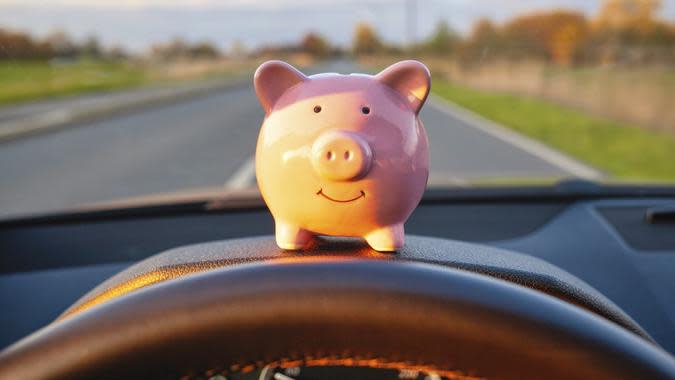7 FIRE Tips To Retire in Your 30s

Retiring any time before age 60 used to be the definition of "early retirement," but nowadays, there's a growing wave of support for the FIRE movement -- for "Financial Independence, Retire Early."
Retirement at Any Age: Get Retirement Tips That Fit Every Stage of Life
More: 7 Surprisingly Easy Ways To Reach Your Retirement Goals
Proponents of this movement target retiring in their 50s, 40s or even 30s. While this might seem like a dream come true for many, the reality is that retiring in your 30s just isn't possible for most Americans. However, it's certainly not impossible. If you want to achieve this lofty goal, you'll have to adopt a mindset of financial conservatism and begin as early and aggressively as possible.
Here are some tips to help you along if you're looking to retire sometime in your 30s.

Save at a Ridiculously High Rate
Retiring in your 30s is no easy task. In fact, for most people, the sacrifices involved are far too great to achieve. But if this is your plan, you'll have to know going in that you'll need to forsake nearly all current luxuries to reach your objective.
While most financial advisors suggest people save between 10% and 20% of their income to retire at a more traditional age in their 50s or 60s, to retire in your 30s you'll likely have to put away 70% or more of your income to even have a chance. Before you can truly "invest" to reach your early retirement goal, you'll have to adopt this mindset for a decade or more.
Live Richer Podcast: How To Get Rid of Your Student Loan Debt

Max Out Your 401(k)
Your 401(k) is one of the best tools to build up retirement savings quickly. Not only will you get a tax deduction on your contributions, but they will grow tax-deferred until you withdraw the money.
The caveat with 401(k) plans and early retirement is that even if you leave your job, you can't access the money until you turn 59 ½. At least, not without paying an early withdrawal penalty. But as you're going to need money to fund your lifestyle from 59 ½ until potentially your 80s, 90s or even longer, it's a great account to have nonetheless.
The contribution limits to a 401(k) are quite high, so if you save a lot of money you can really build a sizable nest egg in a relatively short period of time. In 2022, for example, the maximum contribution limit is $20,500. That means if you can max out your contributions from, say, age 18 to age 39, you can put in as much as $430,500. If your employer also contributes, say, $5,000 per year, that would be another $105,000 in your account. Combined with the growth of your investments over that 21-year period, you could build up a generous balance before you turn 40.

Open a Roth IRA
A Roth IRA is a critical ingredient in any early retirement program simply because of its tax ramifications. Although you won't get a tax deduction on your contributions, when you take qualifying distributions your money comes out tax-free.
With a Roth you're allowed to withdraw your contributions at any time, but with the understanding that before age 59 ½ you'll be paying an early withdrawal fee. This fee is typically 10%, although there are some exceptions depending on what you're using the money for.

Buy Real Estate
Real estate can be a great investment if you want to retire early because it can generate immediate cash flow for you. If you buy rental properties, for example, you can often earn enough income to not only pay your mortgage but also provide you with additional cash flow. Ideally, your properties will also rise in value, so that at some future point you can sell them if you so desire.
Real estate can prove valuable even if you don't earn a high income, as it is leveraged. Rather than having to purchase a property at its full value, you can put up 10% or even less of that amount and still own it. As long as you can make a deal that generates positive cash flow, real estate can be a great help on the path to early retirement.

Invest Aggressively
You're not likely to make your super-early retirement goal without letting your money do most of the work. You're going to have to take some risks in your portfolio, but they have to be prudent risks as well. Tossing everything you make into cryptocurrency, for example, may pay off with a big return, but it might just as well wipe out all of your savings. Those are the types of risks you want to avoid.
Instead, invest in a diversified portfolio of aggressive stocks. You'll need exposure to the upside that stocks can give you, but you also don't want to risk the chance that one bad year or one bad stock blows away your whole retirement savings program.

Cut Out All Discretionary Expenses
If you want to retire in your 30s, you're going to have to abandon the idea of going out to happy hour every day or week, flying across the country to watch your favorite college football team play or even just eating out more than once in a blue moon. For such an aggressive retirement program, you'll have to limit your spending to the basic necessities, such as rent, utilities and groceries. This means you'll have to be prepared to say "no" to friends and family that may ask you continually to meet up for dinner or go on a vacation.

Understand the Financial Ramifications of Retiring So Early
Although in one sense retiring in your 30s seems like a dream lifestyle, there are many ramifications to making that choice. In addition to the social aspect -- meaning, most or all of your friends are likely to be working and unavailable to spend all your free time with you -- there are plenty of financial ramifications as well.
For starters, if you retire in your 30s, you may have to stretch your money over 60 years or more. That's an incredibly long time to make a pot of money of any size last. Over that long of a time period, the effects of inflation will also be devastating. Even at a relatively modest 3% rate, inflation will double the prices of goods and services about every 24 years -- meaning costs will double, then double again, then possibly even double again in your lifetime. You'll also have to come to grips with the fact that you may not even qualify for Social Security, and even if you do, you won't receive your benefits for 30 years or more. The same is true of Medicare, which doesn't kick in until you reach age 65.
The bottom line is that you'll likely need more money saved than you originally budget for if you retire in your 30s.
More From GOBankingRates
This article originally appeared on GOBankingRates.com: 7 FIRE Tips To Retire in Your 30s

